By Guest Blogger Rebecca Jordan
Ever been on a diet? Yeah, most of us have, so hearing someone’s on a diet doesn’t really surprise most of us. But here’s one that may surprise you – my thirteen month old has been on a diet since she was eight days old.
Two days after we came home from the hospital, the pediatrician called and said we had to rush up to the office before they closed for the day because something was wrong with my daughter Dorothy’s newborn screening and they had to rescreen her. Needless to say, I panicked.
We hurriedly grabbed all the things new parents think a newborn might need, hopped in the car and dashed to the doctor. There the nurse redid the newborn screening and we noticed she did it differently. We asked, and she said that it was likely a false reading because the nurse at the hospital must have done it wrong if she did it differently. While it ended up being the nurse at the pediatrician’s office that didn’t follow the correct protocol, we later learned this wonderful woman inadvertently gave me the gift of peace.
Over the coming weekend, while waiting to hear the results of her second screen, I miraculously forgot all about it. I didn’t stew, I didn’t fret. I really didn’t even think about it again until the next Monday when the pediatrician’s office called back again and said that we had an immediate appointment at UNC Hospital. They couldn’t tell us anything more than that, and said to expect a call from the hospital giving us directions and answering any questions we had before we got there. (Any questions? We had nothing but questions, starting with “what’s wrong with our precious beautiful apparently healthy baby?”) I think that evening might have been the first time I ever saw my husband cry.
While that call was the worst of my life, I am also immensely grateful for it. Without newborn screening, we would have had no idea Dorothy needed treatment until it was too late. Newborn screening is currently waiting for re-authorization before Congress. If this critical act doesn’t pass, the one in 300 babies, like my girl, who are currently saved from life-threatening debilitation through newborn screening, are at risk.
After a tense one and a half hour drive to Chapel Hill, when we, of course, forgot the stroller and had to lug the infant carrier -what felt like a mile from the parking deck to the hospital – we found out that our little girl had a rare genetic disorder called phenylketonuria, or PKU. We couldn’t believe it. Nobody in either of our families has any history. How could this be? Apparently since phenylketonuria is an autosomal recessive disorder (meaning both parents have to be carriers and then both have to pass on the recessive gene) and is considered “very rare,” according to the National Organization of Rare Disorders. It can be passed down recessively for generations without anyone being any the wiser.

PKU is an inborn error of metabolism. She’s missing an enzyme that allows her body to process an essential amino acid called phenylalanine, or phe for short. She can only have exactly what her body is able to use. If she gets any more than that, it will begin to build up on her brain and can cause severe intellectual disability, seizures, mood disorders, and more. Since phe is in all foods except water, sugar, and fat, she can’t get the bulk of her nutrition from food. She has to drink a prescription phe-free formula multiple times each day for the rest of her life.
She’ll be 80 and still drinking her formula.
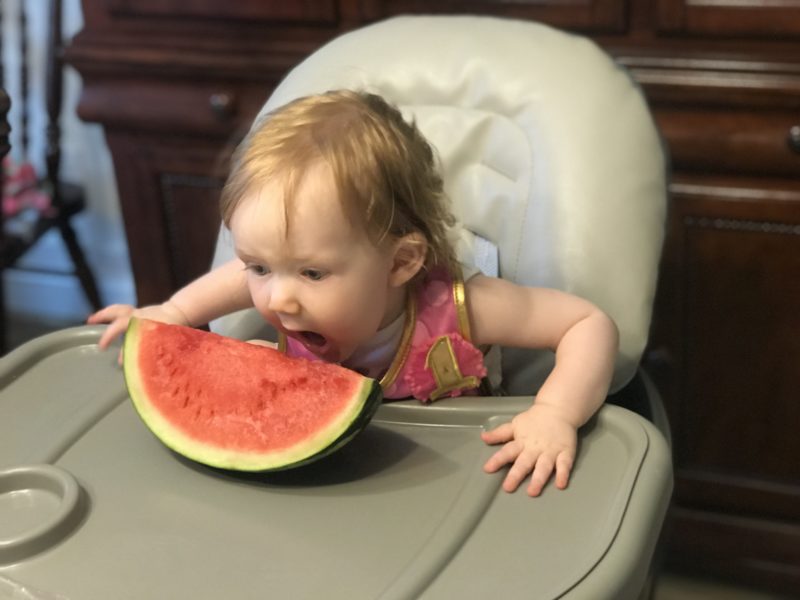
So excited for 1st birthday watermelon “cake!”
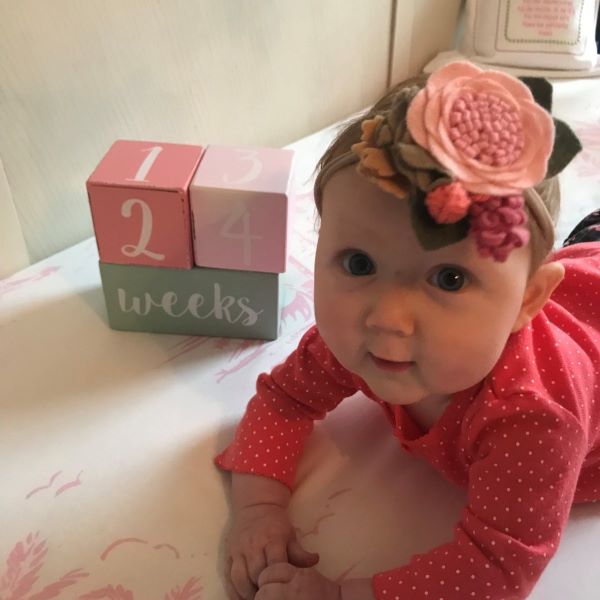
Growing strong, smart and sweet!
To determine exactly how much formula her little body needs, we take her blood twice a week. The doctors then tell us exactly how much formula she needs each day and exactly how much phe from food she can have in milligrams. We subscribe to a listing that tells us how much phe in milligrams is in common foods per gram. Some foods are totally off limits because they have so much phe. She will never have meat, dairy, nuts, beans, or anything made with grains or eggs. What does that leave, you ask? Pretty much just fruits and vegetables. Even those have phe in them though, so we have to weigh every bite she puts in her mouth and she’ll have to do that for the rest of her life.
It’s a genetic disorder. There is no cure and she won’t grow out of it. It’s quite literally in her genes.
Not only is there no cure, there’s also no medicine. Dietary therapy is the only treatment. We are unexpectedly raising an infant vegan. Vegan plus, really, because vegans can have nuts, beans, and grains.
While I’m so grateful that veganism is becoming more common and motivating manufacturers to make foods that are more plant-based, we’ve also found that many vegan items are actually really high in phe. Vegans’ bodies still need it after all. Many of the items she eats are considered medical food. They’re specially designed to be low in phe and are only appropriate for patients with inborn errors of metabolism. These items are incredibly expensive. To give you an idea, a box of low-protein pasta costs $14. That’s roughly a 1400% increase in cost over a regular box of pasta. In several states, including North Carolina, there is no requirement for insurance to help with her food or formula. Needless to say, this adds an additional financial burden. I especially worry about those with few financial means. Should they suffer without access to their medicine just because the only medicine science has developed isn’t traditional medicine?
There is a bipartisan act before Congress called the Medical Nutrition Equity Act. I urge you to contact your representatives and ask them to co-sponsor this act that would require insurance companies to help with formula and food since it is medicine. Please take five minutes and tell them that you care and they should too. There is no downside to requiring insurance companies to cover this medical treatment, just as they would other medicine. Your voice matters and is appreciated!
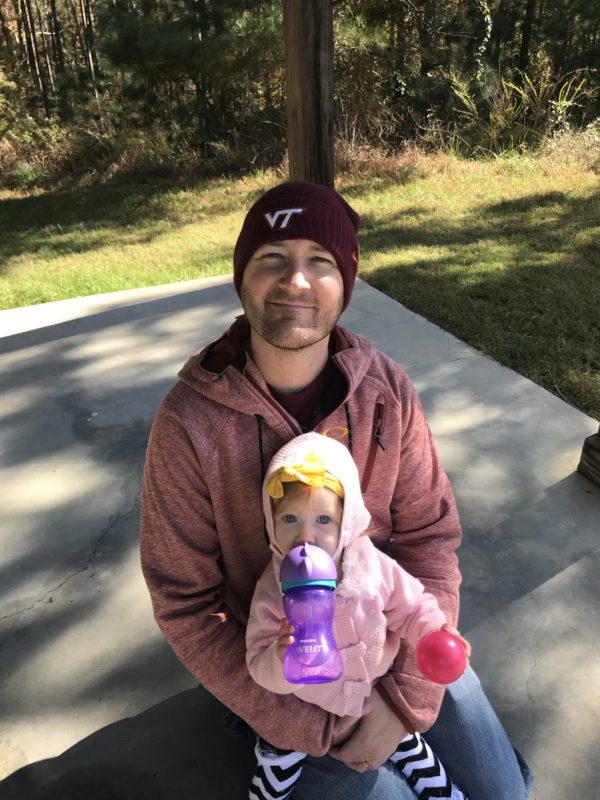
Drinking my formula at my cousin’s 5th birthday party.
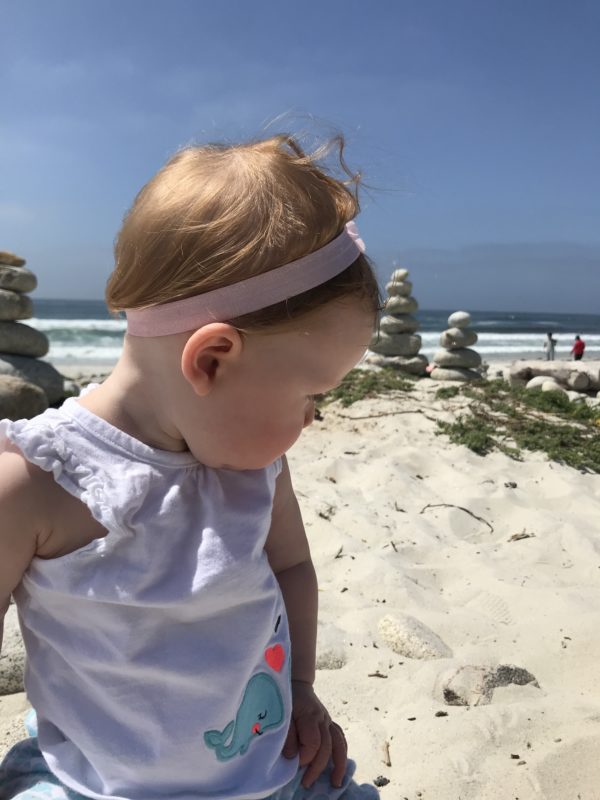
At Pebble Beach – PKU doesn’t stop me!
Of course, we’ve gotten hurtful comments and strange looks.
A pediatrician (who we haven’t been back to see since) told us not to call her vegan because it has negative connotations. When we’re weighing out her food while we’re out to eat, people give her pitying (and us angry) looks like we must have our poor baby on a diet. Well, she is, but it’s doctor-ordered and to keep her brain healthy, not her body thin. We had to switch churches because she was being excluded from the lesson and fellowship with her peers at children’s church just because she can’t eat Cheerios like the other children.
The upside to all this, though, is that we’re learning how to advocate for her at an early age, and she will too. Hopefully, she will develop compassion for differences in others at a younger age than her peers, have a healthy respect for her body and understand the role good nutrition plays in physical and mental health, learn responsibility and self-control, and build confidence in herself and the unique ways God made her.
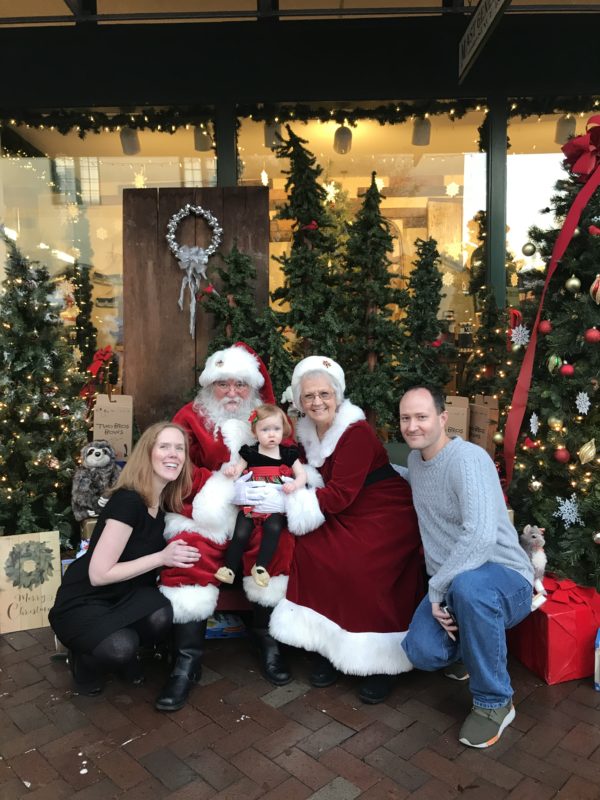
Happy and healthy!
So, next time you see something you don’t quite understand or think us parents with kids with dietary or other restrictions are going a bit overboard, please remember that there are over 1,200 rare diseases out there that you’ve likely never heard of.
If you are also living with or caring for a loved one with a rare disease, please reach out. Support exists. Most disorders have a dedicated organization. Family Support Network of Central Carolina is an excellent resource for children with any disorder, including premature babies, in the Triad. Specifically for rare diseases, they have a rare disease mom’s group that meets monthly. If your child has a rare disease, please join us.
As the National Organization of Rare Disorders says, “alone we are rare, but together we are strong.” Thank you for your thoughtful compassion for others with differences and for standing strong with us!
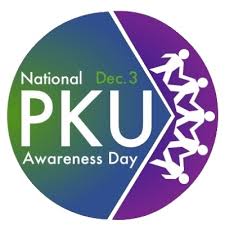
Want to see more blogs like this and get notifications on local events and happenings? Subscribe to Triad Moms on Main’s free weekly newsletters here.

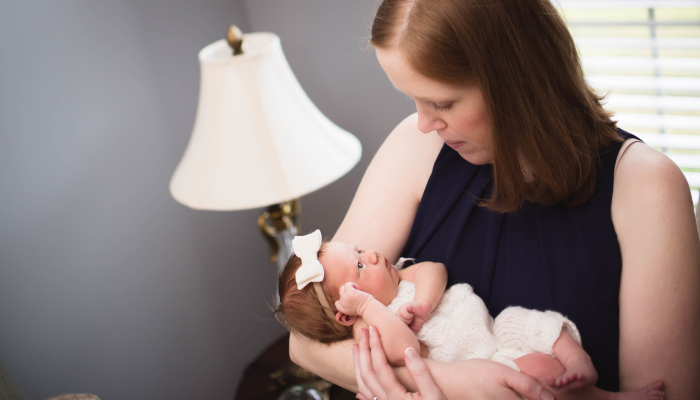















Your little girl is precious and is so lucky to have you!
Wow! Such an amazing story. You are doing a great job, mama!
She is simply precious! Prayers and love sent to your family!